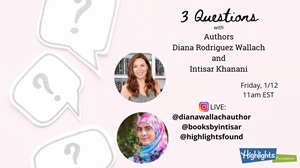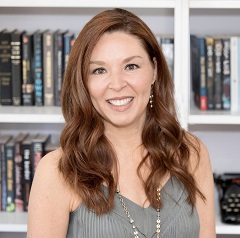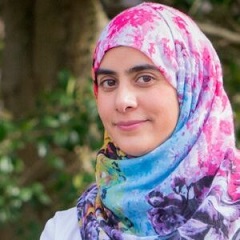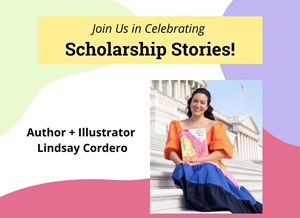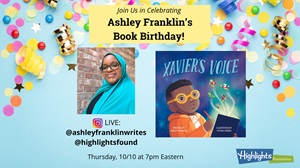Some Takeaways:
Escaping Through Horror: Diana thinks that maybe kids and teens are reading these books and thinking: “At least I’m not possessed by a demon. At least I’m not being, you know, axe murdered, you know. Like it’s not that bad.” She thinks “that could be just as much escapism as like a romantic comedy!”
Hope, and a Safe Place: From Intisar: “The beautiful thing about science fiction and fantasy, horror is that especially with young adults, there is a thread of hope through it, right? But there is a safe place in these genres for questioning authority and for standing up against what’s wrong, whether it’s corruption or genocide or something else. And there’s a structure for investigating what’s wrong in our world in a different space.”
Doing Your Research: Intisar was fascinated to find that Diana spent the night in Lizzie Borden’s house while writing Hatchet Girls!
What Stage Should Your Manuscript Be In Before You Bring it to a Whole Novel Workshop?
From Intisar: “I think really the critical ingredient is that as a writer, you feel ready to share it. If you feel that there’s big things wrong and you’re not ready, or it’s not coherent or whatever it is, and go ahead and take the time to keep working on it. But if you feel like you’re ready for another set of eyes, um, it doesn’t have to be in a particular stage in order to come to the workshop. It just needs to be ready for you to dive into revisions wherever you’re at.”
Full Transcript:
Cat: A big hello to our Highlights Foundation family. We’re so happy to have you here with us. For those that may not know me, I’m Cat Galeano. My pronouns are she/her and I’m the social media manager at the Highlights Foundation, joining you from Westchester, NY, on the traditional lands of the Siwanoy people. I’m also a writer AND a reader who is so so excited to have this lunchtime chat with our friends and faculty Diana Rodriguez Wallach and Intisar Khanani, where we’ll talk a little bit about their upcoming multi course, multi-week course Whole Novel Genre: An Online Course for Sci-Fi, Fantasy, Horror, & Beyond that they’ll be co-teaching with Alisa Alering, Nicole Valentine and K.X. Song.
Now let’s get started. But before we jump in, I’d like to let our community know that if you have a specific question about the course, I would please encourage you to email us at support dot Highlights Foundation dot org. Someone will type that in the chat for us, just so that if you have any like super-specific questions that we can’t answer right now. So let’s get started. My first question is why do you think that these genres of horror, sci-fi and fantasy are having such a moment right now? Why do you think? That kids and teens are so drawn to them.
Diana: I’ll start! I write young adult horror, so I have written, I’ve published 8 books to date and my last two were both young adult horror. And I wrote Small Town Monsters in 2019. It came out in 2021, but I wrote it in 2019 and I remind people that that was a very dark year. I think we imagine 2020 as being the start of the dark times, but 2019 was the lead-up to the election. And it was during the thick of a very tumultuous political period. Families were fighting with each other. Neighbors were fighting with each other, and the idea of having demonic possession not involved just one person but an entire community. Like looking back, I can see clearly why my brain was thinking the way that it was.
You know so and then I think as readers, we, the book releases in 2020 in the thick of the pandemic or 2021 it came out. It was just such a dark time that I’m looking at kids, who the book is intended for. My own kids spent so much time isolated–they couldn’t play sports. They were on virtual school. They couldn’t hang out with their friends, and the idea of escaping into a world that is worse than yours. You’re like, hey, at least I’m not possessed by a demon. At least I’m not being, you know, axe murdered, you know. Like it’s not that bad. Like, I think that could be just as much escapism as like a romantic comedy. So I think that is where like, the interest in dark, you know, teen novels has come from recently.
Intisar: I, I definitely have to agree. And the the kind of escapism aspect, you know, we have–more and more, I feel like young people are aware that we’re living in a dystopia and I think the beautiful thing about science fiction and fantasy, horror is that, a, especially with young adults, there is a thread of hope through it, right? So you’re going to get through it. Someone’s going to survive. Maybe not everyone–there are going to be a few people who get axe murdered. But there is a safe place in these genres for questioning authority and for standing up against what’s wrong, whether it’s corruption or genocide or something else. And there’s a structure for investigating what’s wrong in our world in a different space. So you can ask those questions and and you’re not asking it in your life actively. You’re asking it somewhere else and you can bring that back to your life. And I think that’s become really, really valuable in the world that we live in, where there are so many things that need to be questioned and dealt with. It gives us a place to kind of breathe and still do it.
Cat: I want to thank you for your responses because as someone that does not read horror and sci-fi–and a little bit of fantasy–I never thought about it. Like, yeah, our world is terrible. So maybe I should read something that’s worse. I sort of just read it like: I don’t want to read anything that’s worse. We’re already in a dystopian era. So for people that don’t read this, I feel like that’s a really good sort of turning of the mind of being like, You know what? Why not read something that is worse? And then kind of maybe appreciate it’s not so bad. But kind of it is terrible. I don’t know. I just love the way you framed that because I was like, you know what? I should maybe explore this now the way that you described it.
Intisar: Some fantasies, some sci-fi, probably not a lot of horror is still escapist in that you’re going to, you know, there’s some huge cozy fantasy right now, push like, there’s definitely like escapism into a happier place where, like, we’re not dealing with the world is ending. And I think there’s that, that, you know, romantasy, like all these things have taken off, in large part because we also need escapism where we’re not seeing the dark side. So I mean every kind of escapism is good escapism.
Cat: Team escapism these days. Did you have anything, Diana you wanted to add to that?
Diana: No, no.
Cat: OK, perfect. So I’m going to jump into our second question, which is you’ve both taught and/or taken a Whole Novel Workshop with the Highlights Foundation before; what has been your favorite “whole novel” moment here so far?
Diana:I taught the same course this time last year and that was my first time teaching with the Highlights Foundation. And I will say, what I was struck most by were how diverse the crop of books that I got were. So I read 5 novels for the course last year and they were so interesting. So I had a fantasy novel, a young adult fantasy, and rather it being based on white European medieval times, it was based on Islam and Middle Eastern culture, religion, traditions, and it was such an interesting element to add to the fantasy genre, which can sort of lean in this very Eurocentric way.
I also had a thriller novel featuring a Muslim fashion model who wore a hijab. And I loved that, and it gave everyone sort of a glimpse into a fashion industry that you may not have known but adding this thriller element so it wasn’t a tragedy. It wasn’t a identity story. It wasn’t an immigration story. It was a thriller novel, a fantasy novel. The characters are of a different culture and it just was part of the story. Not the point of the story, and I loved that. Even, I had a middle grade novel, there was one middle grade that snuck in there that was called “Dibblings” and it was about donor-‘conceived kids who are biological siblings. And it just so happens that my sons best friend is a donor-conceived kid. And he knows his dibblings. And it was such an interesting, you know, world that I never thought of, and all these kids who are meeting each other and forming these relationships with each other. And I was like, you had all these books that I was given were so very very different and so unique and I think would really find a reader right now.
Cat: Yes, I mean, all those subjects alone I’m like. I need to read those now so. Intisar, you want to jump in?
Intisar: I have to agree with Diana. I have to say first of all, I am awestruck that you managed to read 5 full manuscripts. That’s amazing. I only read 2. And I agree with like just how cool it was to read. One of mine was a middle grade fantasy featuring an African American young boy who went on this adventure that was just super cool. It was very diverse. It had all kinds of different things going on, but it was, it was recasting the fantasy mold and then the other one was recasting it a different way–you know, as a diverse cast, the main character had a disability. And it was so cool to read because we so much need more representation. And it was. ot was amazing, being able to be part of of that process and helping that author or that writer, um, you know, fine tune and polish their work.
I think the other what couple other small highlights I loved: We had a writing retreat attached to our workshop, and I think two of my favorite moments. One was when the whole group gathered in the granary, which is just a building, a really cozy room, and we just talked revision and process and it was so fascinating. We had five authors there and had a whole bunch of students, and we’re just all sharing and learning from each other. And it was a really neat moment, and I think my other, my other neat moment was Diana. When you were sharing how you stayed in the Lizzie Borden house. It was quite a powerful story.
Diana: Yeah, I know. And it’s funny that you mentioned that because I just posted a TikTok this morning that touches on that book research about sleeping in the Lizzie Borden house. And the book research to my next book is at an abandoned girls reform school. That’s the setting. There’s one near my house and I posted the video of me walking through this now dilapidated spray painted ruins of this girl’s reform school.
Intisar: This is where I’m so glad it’s you doing the research. Because I couldn’t have actually done it. But I will watch your video.
Cat: Basically go to the clock app so that you can watch these these these amazing videos because that sounds super freaky. But super cool. And like what research–like how cool is that? Like Intisar just I said probably not me, I’m like too scared to do that. But how cool is that?
We’re going to jump into our third question, which is our last question. We know that you can have a draft of your whole novel in order to participate in this course, can you speak to what stage of revision or what state of mind people generally come to this course with and what they get out of.
Intisar: So I think–and Diana, feel free to to, to correct me–But I found that there was quite a variety. One of my manuscripts was very polished, just needed some fine tuning and, you know, just really kind of deepening of themes and it was very much almost at the line level of of making this book really shine. And then the other one you know, was the full draft also it was earlier in its stages and it needed more kind of developmental edits. And thinking about: how are you doing? What are you doing and can we improve the pacing here? And I think it’s a really a question of what the writer needs and where they are, what they’re looking for. And what I love about how Highlights sets this up is when they submit a manuscript they’ll say to each, you know, each faculty: This is what I’m looking for. This is what I’m not sure about. This is what I think I need. Can you give me feedback? On these things–and you know, as a reader, we always give more. Yeah, but know where you are in your process as well, and we can speak to that. I think really the critical ingredient is that as a writer, you feel ready to share it. If you feel that there’s big things wrong and you’re not ready, or it’s not coherent or whatever it is, and go ahead and take the time to keep working on it. But if you feel like you’re ready for another set of eyes, um, it doesn’t have to be in a particular stage in order to come to the workshop. It just needs to be ready for you to dive into revisions wherever you’re at.
Diana: So I would say that like a two-part answer to that versus like where the manuscript should be and where you should be like mentally for it. I think for the manuscripts, I was impressed that all the manuscripts I got were very clean and polished. And that is one big thing I would recommen–you don’t want to spend your time with me fixing your typos and line edits. You know that’s not a good use of what you joined this course for. So make sure that that is free from typos. And it’s clean. So what I’m focusing on is the content and I can give you a really good developmental edit. That’s what you came here for.
Now in terms of state of mind. Prior to Highlights, I used to teach for Johns Hopkins, the Center of Talented Youth. So I was teaching gifted kids who were taking college courses. College writing courses and before that course started and before this course last semester started, I send an email and I tell them you have not sent me your manuscript yet and I want you to know that you will receive more feedback from me than you have ever received on anything ever in your life. OK. Like I haven’t even seen your manuscript. I can just guarantee that off the bat, so when you get it. You know, read it and then walk away for a couple days. You know, just read it and walk away because it’s it’s a lot.
Like now that I’ve been at this–I’m on my 9th and 10th books–I can get a 7-page edit letter and I don’t you know, shirk away from it. I know that it’s going to make my book better and I can take that now. But in the very beginning, with your very first book, it can be a lot to process, so I make sure I set that expectation early and so that they know that I have never ever read a book that I haven’t given this much feedback to. So it’s not just you. She’s like, “oh, she hates my book.” No, I’m here to do this. This is why you came here. So you’re going to get so much feedback. It’s going to be a lot at first. But then we get to have conversations about it. You know, a few days or a week later and you can really talk to me about it. Once you had a chance to digest it on.
Intisar: That’s a really good point is that we, we share their edit letters– and mine were like 50 pages long–so I absolutely agree with you. It’s intensive, but then there’s time for the student or the writer to walk away from it, think about it. Come back and then engage with us in conversation around what the edit letter says, what they’re thinking, with their manuscript–and the idea here is. that we’re pumping you up. You know, it’s never meant to bring you down. It’s really meant to, like, give you energy. You see all the potential that manuscript has and you feel ready to take it on. Because we’ve given you the, the insight or the resources or tools to get there.
Cat: And like you mentioned, I love the fact that this online version of Whole Novel is a multi course like it goes on for quite a few weeks and it allows you to marinate with all the, you know, the feelings of giving your manuscript to new eyes and then receiving the edit letter sitting with it. And then you know, talking it all through, but then you open up yourself to this cheering squad of new friends, new community, mentorship, and I think that’s the really special thing about our Whole Novel programs is that, is all of that.
So that’s all my questions. All I have is my outro. So thank you in advance, but if you’d like to learn more from Intisar and Diana and the rest of the Whole Vovel faculty, while also having your whole manuscript looked at, please make sure to get your applications in by end of day January 23rd. It is creeping up and just around the corner because we’re practically in the middle of January already, which is wild. The course officially kicks off on February 15th and remember, if you have any specific questions about the course, please email us at support.highlightsfoundation.org. Intisar and Diana’s books, as well as the rest of the faculty’s books. are available to purchase at our virtual Book Shop powered by bookshelf.org. Thank you, Intisar. Thank you, Diana, for joining us today and we can’t wait to see you online soon and friends get those applications in before the window is closed.
Diana: I was going to suggest to mention the the names of the other faculty members again, because I saw someone in the comments ask if Intisar and I were the ones teaching and we are two of five who are teaching it, yes.
Cat: So it will be Diana and Intisar along with Alisa Alering, Nicole Valentine and K.X Song. It will be a team of 5 that will be leading the course.
Cat: Everyone, thank you so much for joining us.

